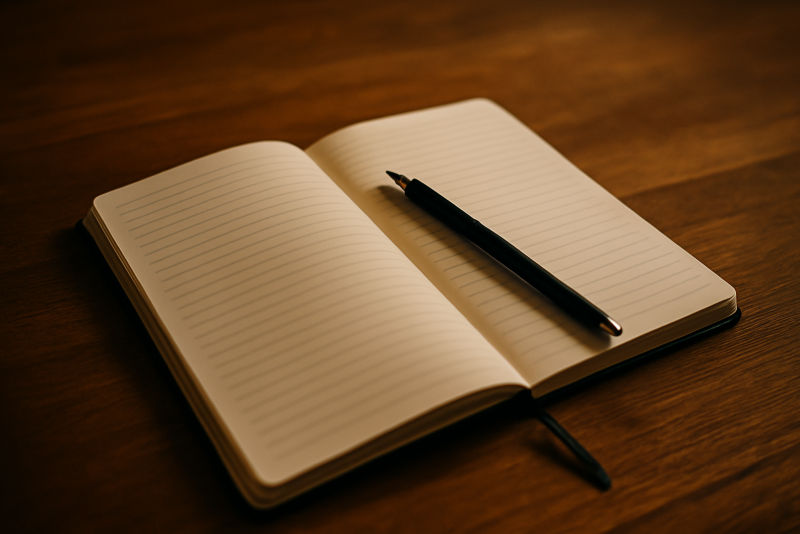
Journaling is more than just writing — it’s a powerful tool for self-reflection, emotional healing, and daily grounding. Discover how this quiet practice can support your mental and emotional well-being.
By Sergio Toledo
Editor-in-Chief, Heed to Heal
There’s something quietly powerful about putting pen to paper. In a world that constantly demands our attention — with screens, noise, and to-do lists pulling us in every direction — journaling invites us to slow down and listen. Not to the outside world, but to ourselves.
Journaling isn’t about being a great writer or documenting every event in your life. At its core, it’s about reflection — a way to process what you’re feeling, make sense of your thoughts, and return to the present moment with a little more clarity. It’s the act of listening to your inner voice without interruption.
Many people find journaling helpful during stressful times, but it can also be a gentle daily practice. You don’t need a fancy notebook or a structured prompt. Sometimes the most healing entries begin with a simple sentence like, “I don’t know what to write.” From there, something often stirs. Something opens.
Studies show that journaling can help reduce stress, regulate emotions, and even strengthen your immune system over time. According to research by psychologist James Pennebaker, expressive writing — even for just 15–20 minutes a few days in a row — can improve both mental and physical health. It allows us to process difficult experiences and gain insight into patterns we may not have noticed otherwise.
But journaling isn’t only useful during hard times. It can be a space to celebrate small victories, track personal growth, or even express gratitude. It’s a space where you don’t have to edit yourself or explain. You can be messy. You can be real.
One of the most beautiful parts of journaling is that it creates a kind of conversation with yourself over time. When you look back on past entries, you begin to see how far you’ve come — not just in terms of life events, but in how you handle things, how you talk to yourself, and what you value. Your past thoughts become a mirror, reflecting the quiet progress that might have otherwise gone unnoticed.
There are no rules for journaling. You can write daily or only when the mood strikes. You can use bullet points, poems, or long-form letters to yourself. Some people find comfort in structure — using prompts, gratitude lists, or mood trackers — while others prefer to free-write whatever comes up. What matters most is that it feels like yours.
In a world that often moves too fast, journaling offers a place to slow down and be present with your own experience. It’s not about fixing yourself. It’s about hearing yourself. And in doing that, healing can quietly begin.
References
- Pennebaker, J. W., & Smyth, J. M. (2016). Opening Up by Writing It Down: How Expressive Writing Improves Health and Eases Emotional Pain.
- Baikie, K. A., & Wilhelm, K. (2005). Emotional and physical health benefits of expressive writing. Advances in Psychiatric Treatment, 11(5), 338–346.
- University of Rochester Medical Center. Health Benefits of Journaling
Originally published by Heed to Heal, 06.30.2025, under the terms of a Creative Commons Attribution-NonCommercial-NoDerivatives 4.0 International license.






